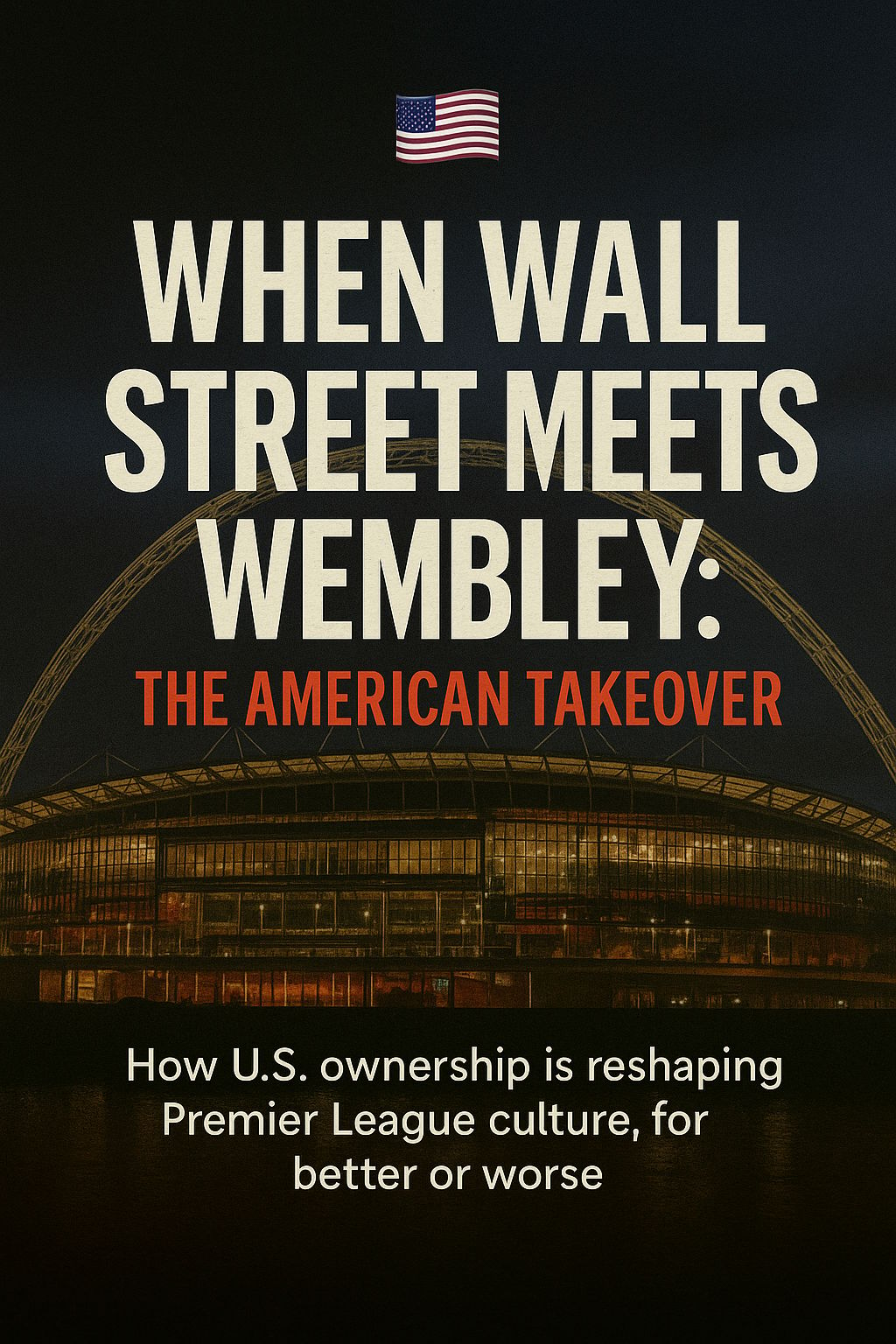Hello Hi, Visionaries!
When I look into competitive sports, I’ve noticed that championship winning teams need two things: deep pockets for talent AND a winning culture that money can't buy. The same applies when American owners dive into Premier League football.
Over the last two decades, we've seen U.S. investors storm the Premier League like it's Black Friday at Curry’s. But here's the thing, buying a club is easy. Building a legacy? That's another part of the equation that hold that dreams are made of.
Let's break down how American ownership styles have created both magic and mayhem across four Premier League powerhouses.
THE STARTING LINEUP: WHO'S WHO
CHELSEA: Todd Boehly's consortium (2022-present)
MAN UNITED: The Glazer family (2005-present)
ARSENAL: Kroenke Sports & Entertainment (2011-present)
LIVERPOOL: Fenway Sports Group (2010-present)
THE SCOREBOARD: WHO'S WINNING
🔵 CHELSEA: BIG SPENDING, IDENTITY CRISIS
Performance: D+
Remember when Chelsea under Abramovich was like that ruthless teammate who'd do ANYTHING to win? That was their superpower, a cutthroat winning mentality.
Since Boehly's takeover:
Spent £1B+ on players (like that friend who buys expensive gear but still gets picked last in 5 a side team)
Hired and fired coaches faster than you can change your underwear
Lost connection with club legends and history
The Business Lesson: Even unlimited resources can't compensate for cultural confusion. Chelsea's become the cautionary tale of what happens when you treat a historic club like a quarterly earnings report.
Takeaway: When acquiring heritage brands, maintain continuity in values before implementing sweeping changes. The fastest path to ROI is through respecting existing DNA.
🔴 MAN UNITED: THE DEBT-LADEN GIANT
Performance Grade: C-
The Glazers came in with a classic American playbook: leveraged buyout, maximise commercial deals, treat it like a business first. They’ve focused on the endorsement deals while forgetting about what’s made the club legendary.
The results:
Commercial team crushing it (44 global partnerships)
Football operations stuck in 2013
Fans creating more noise in protests than in the stands
The Business Lesson: United proves you can't commercial-strategy your way out of poor on-field performance forever. Even the biggest brands need competitive substance.
Takeaway: Balance sheet success without product quality creates brand vulnerability. Commercial teams and sporting directors need to be aligned.
🔴 ARSENAL: THE COMEBACK STORY
Performance Grade: B+
KSE ownership started rough, like that debut season where nothing clicks. But they've turned it around by:
Trusting the process (Arteta + Edu's vision)
Investing in youth development
Rebuilding connection with fanbase through transparency
The Business Lesson: Sometimes the best strategy is patience. Arsenal took the long-term approach and now they're reaping both sporting (still yet to win the league though) and commercial rewards.
Takeaway: Brand rebuilds require conviction and consistency. Short-term pain for long-term gain is the playbook when revitalising legacy properties.
🔴 LIVERPOOL: THE BLUEPRINT
Performance Grade: A
FSG brought Moneyball to Merseyside, combining data with deep respect for club history:
Upgraded facilities while preserving Anfield's soul
Built sustainable recruitment model
Leveraged success for global growth without losing local identity
The Business Lesson: When sporting excellence meets commercial savvy, magic happens. Liverpool shows how modern business practices can enhance tradition rather than replace it.
Takeaway: The clubs winning both on and off the pitch are those that view heritage as a competitive advantage, not an obstacle to overcome.
THE PLAYBOOK: WINNING STRATEGIES
If I were coaching an American investor buying into European football, here's the game plan I'd draw up:
Cultural Immersion Comes First: Spend time with fans, staff, and club legends before making major changes. The fastest way to lose in this game is to ignore the club's soul.
Build Long-Term, Think Short-Term: Create 5-year sporting visions but deliver quarterly wins for fans (not just shareholders).
Local Connection Drives Global Expansion: The most successful global clubs never lose their local identity. That authenticity is what fans worldwide crave.
Storytelling IS Strategy: The clubs winning the content game are those connecting current stars to club history. Digital content should reinforce club DNA, not replace it.
Emotion IS Your Business Model: At the end of the day, we're selling passion. Over-corporatising kills the very thing that makes sports valuable.
THE FINAL WHISTLE
American influence isn't inherently good or bad for the Premier League, it's all in the execution. The ownership groups that win understand they're temporary custodians of our sacred footballing institutions, not just asset managers of global brands.
Just like in sports, the owners who respect the game while evolving it are the ones who build dynasties, not just profitable quarters.
Until next time, keep ballin' and business-ing!
WHAT'S YOUR TAKE? Has American ownership been good for the Premier League? Hit reply with your thoughts for next week's issue!
Field Vision is your twice-weekly newsletter on sports and the business behind it. The business moves shaping global sports. Subscribe now for more analysis that keeps you ahead of the game.
